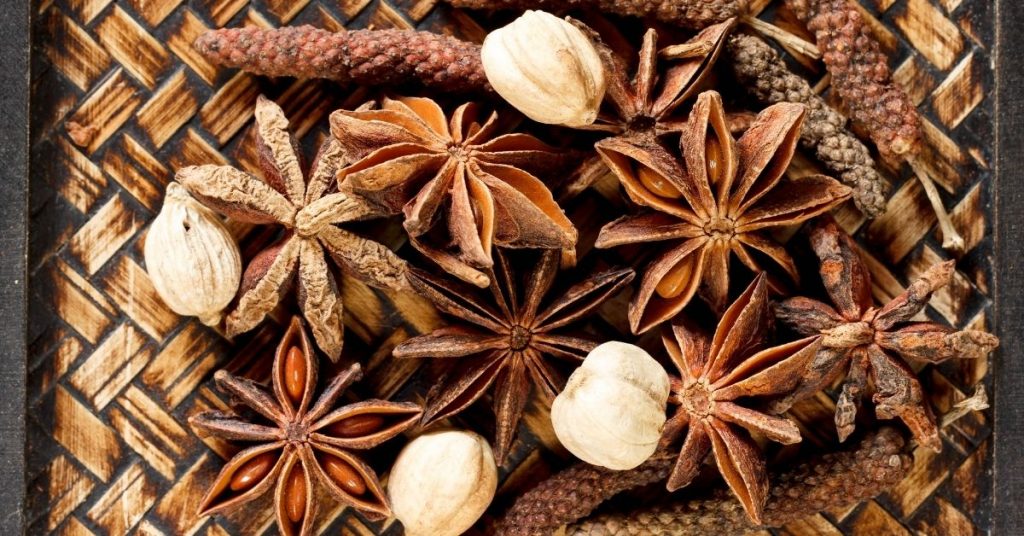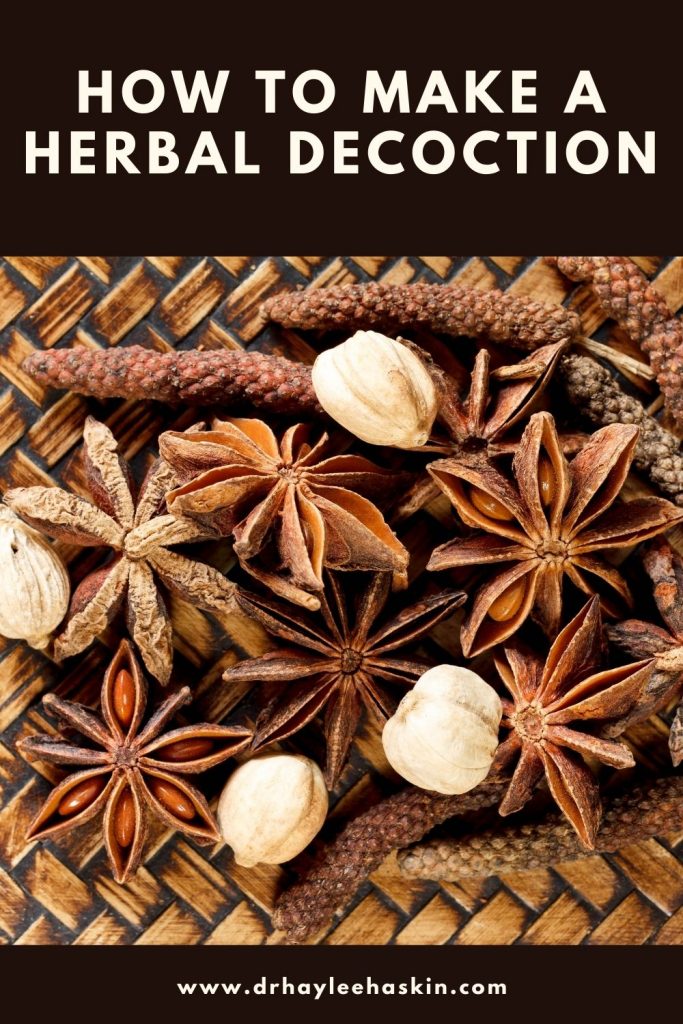A herbal decoction is a form of extracting the medicinal qualities of more fibrous and woody plants, such as roots, barks, seeds, and berries.

To continue on our herbal journey, today I am going to talk about how to make a herbal decoction. The process is a little different because we are using tougher parts of the plants, including the bark, roots, berries and seeds. Since they are tougher in nature, the process of extracting the medicinal qualities requires a slow simmer.
MAKING A HERBAL DECOCTION
The process of making a herbal decoction is not any more difficult than an infusion. It simply requires you to be at your home while the herbs are infusing so you don’t accidentally burn your house down.
As a reminder, generally the tea to water ratio is about 1 to 2 tablespoons of herb(s) to 1 cup of water. Again, feel free to experiment as some people like their tea at different strengths.
- Start with 4 to 6 tablespoons of dried herb and place into a small pot or saucepan.
- Pour 32 ounces of cold water into the pot and gently mix the herbs and water together.
- Turn your stove on low to bring the mixture to a low simmer. Cover the mixture and let simmer for 25 to 45 minutes. If you want a stronger or weaker tea, adjust the time to accommodate.
- Strain the herbs and enjoy!
HERBS TO USE FOR A DECOCTION
Since we are using higher heat for a longer period of time, we want use tougher plants. Using delicate flowers and leaves will be too harsh on the plant and will produce a more bitter and unpleasant tea. Below are some of my favorite herbs to use as a decoction.
Elderberries
Elderberries are commonly known as an immune powerhouse herb. Many people use it in the form of syrup, but you can also make a herbal decoction and enjoy it as a hot cup of tea. For those who love elderberry syrup, a decoction is actually the first process of making a syrup. The ratios and simmering is simply a little different. Check out my post on herbal syrups to learn more.
Cinnamon
Who knew that the same stick of cinnamon that you see around the holidays can be used to make a delicious tea. Cinnamon is very warming, which makes it great for the winter time. It is also great to aid in digestion, regulate inflammation, and is extremely helpful for blood sugar regulation.
Licorice
Licorice is an all star herb. It is antiviral and antibacterial, making it a great immune protecting herb. Licorice also is extremely nourishing to your adrenals, which makes it a great herb for people who are chronically stressed and fatigued. It has been known to raised blood pressure, so if you already have elevated blood pressure, consider trying another herb to enjoy in your herbal decoction.
Astragalus
Astragalus is one of my favorite herbs. For one, it is an amazing immune tonic, especially for kids (consider combining with elderberries). It can also improve energy by gently nourishing your adrenals.
Rose hips
Rose hips are tart and tangy, and are a great addition to most herbal decoctions. They are extremely high in vitamin c, as well as antioxidants, and nutrients. They are a great addition to most teas.
Other herbs that make great herbal decoctions include: ashwagandha root, burdock root, dandelion root, cramp bark, echinacea, ginger, marshmallow root, schisandra berries, and yellow dock.
Check out Mountain Rose Herbs or your local health food store for all of your herbal creations.
LOOKING FOR MORE HERBAL KNOWLEDGE?
PIN IT FOR LATER


